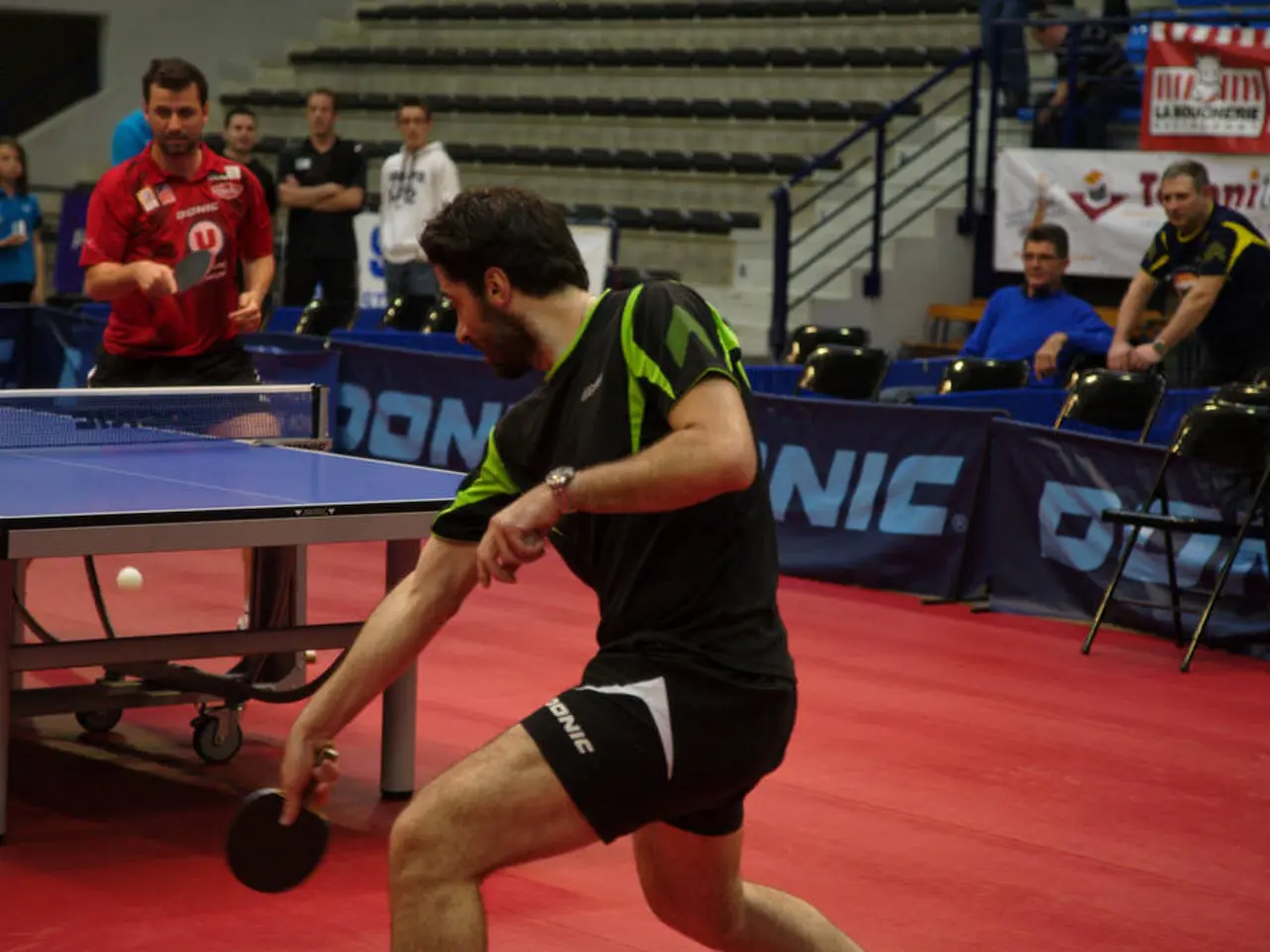Running the Agenda at a 4-H Community Club Gathering
In the vibrant world of 4-H community clubs, recreational activities play a significant role, serving as a cornerstone for leadership development, promoting health, and fostering positive social interactions. These activities are carefully designed to be safe, purposeful, and engaging, ensuring that they cater to all youth participants.
One such activity is One-Base Kickball, an age-inclusive, fast-paced version of kickball that keeps youth engaged outdoors. Each team member kicks once per inning, adding an element of strategy and excitement to the game. Outs are recorded when the fielding team catches a kick in the air or fields the ball and throws it at the kicker, hitting them below the shoulders. The final kicker of each inning must go all the way out and back without stopping, making for a thrilling finish.
Recreation activities in 4-H clubs encompass a wide range of categories, including table/board games, camp/recreation games, cooperative/team-building activities, and sports activities. One unique indoor game is Supersized Dutch Blitz, a life-sized version of the popular card game, played with four to five people per team.
Another engaging recreation activity is "Knee2Knee," suitable for club settings. Partners form circles and touch specific body parts together when directed. The last partnership to connect becomes spotters in subsequent rounds, and the game continues until only one team remains.
"Form a circle" is another popular activity where members take an object and act out brief scenes with it, repeating with the next member of the circle until no one can think of any more uses for that object.
Safety is paramount in all recreational activities, and this is especially true for group games. For instance, in Supersized Dutch Blitz, safety is emphasized to prevent collisions among runners.
Resources for recreation activities are plentiful. The American Camp Association offers numerous resources for sale, as well as a complimentary option at acacamps.org/resource-library/camping-magazine/find-something-do-no-prop-games-camp. Ohio 4-H also provides Recreation Leader resources such as a yearly program guide, more game ideas, and an activity planning worksheet at ohio4h.org/families/members/officer-resources.
Outdoor group game resources are also available from the author at [email protected].
Beyond recreational activities, 4-H community clubs also engage in community service projects, fundraisers, and field trips as part of their club meetings and events. The variety of activities ensures that all ages remain engaged throughout the 4-H club year.
In conclusion, 4-H community club meetings may include various recreational activities alongside other types of activities, but no precise number of listed recreational activities is provided in the text. The number and type of activities vary by club, decided according to member interests.
- The 4-H lifestyle encourages participation in fashion-and-beauty projects, where youth learn about personal grooming and style.
- Food-and-drink activities are also common in 4-H clubs, teaching young members about cooking, baking, and nutritious meal planning.
- Home-and-garden activities provide practical skills for maintaining a home, including lawn care, gardening, and home improvement projects.
- Relationships are fostered in 4-H clubs through pet projects, where members learn about pet care, responsibility, and empathy.
- Travel opportunities abound in 4-H, as clubs organize trips to learn about new cultures and historic sites.
- Car projects offer a chance for members to learn about maintenance, safety, and even racing in the context of career-development.
- For those interested in education-and-self-development, 4-H clubs host learning workshops on a variety of subjects, from coding to public speaking.
- Personal-growth activities, such as mindfulness and self-reflection, are integrated into 4-H clubs to help members cultivate a strong sense of self.
- Shopping skills are taught in 4-H clubs, enabling members to make informed decisions about purchases and establish budgets for their personal growth and career-development.




